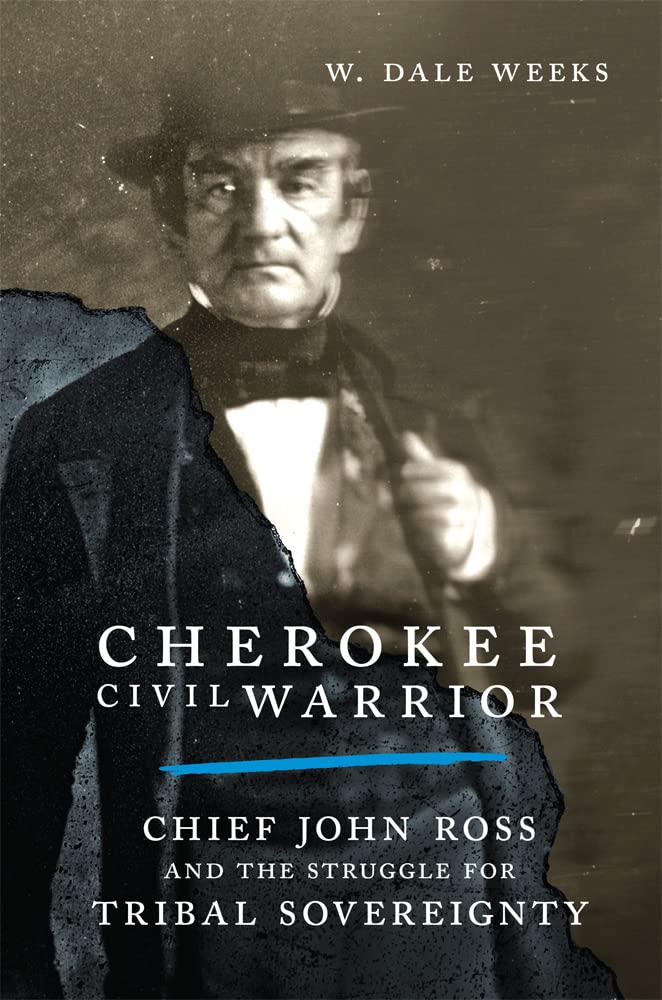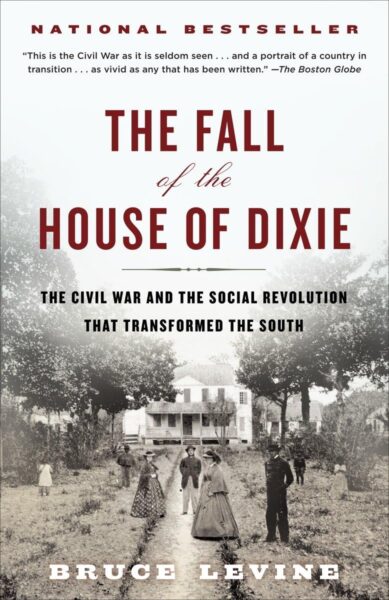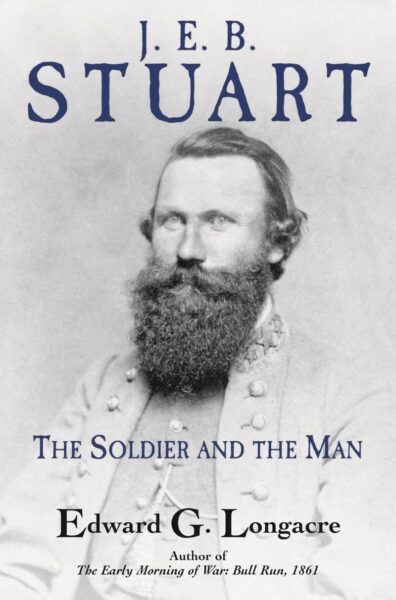W. Dale Weeks makes clear that his biography of the long-serving Cherokee chief John Ross does not focus on Ross’s involvement in the Civil War, despite its title. For Weeks, the Civil War instead serves as “a prop expanding our understanding of the Cherokee Nation,” as the reactions of Ross and other Cherokee leaders to the conflict reveal much about their values and U.S.-Cherokee relations (3).
Weeks largely bypasses Ross’s early life, beginning with the years leading up to the Trail of Tears—a formative period in Ross’s development as a leader. Although the federal government grievously harmed the Cherokee by forcing their removal to the Indian Territory, Weeks argues that a favorable Supreme Court ruling in Worcester v. Georgia left Ross with a “faith in the process of constitutional law” that would continue to drive his decision making for the remainder of his life (47). While the Cherokee clearly could not rely on the U.S. government to act in their best interests, Ross believed that active dialogue with the government and adherence to its treaties would avert future catastrophes for the Cherokee.
Unfortunately for Ross, his principles were to be severely tested by secession and the outbreak of civil warfare. Weeks contends that Ross’s overarching goal during the Civil War was to preserve Cherokee sovereignty, rather than to protect the institution of slavery. Ross was initially determined to maintain the tribe’s neutrality, but this position was complicated by the federal government’s abandonment of its forts in the Indian Territory and the subsequent occupation of those forts by Confederate troops. Weeks demonstrates that this withdrawal was seen as a violation of the treaties by both Ross and U.S. government officials, thus making Ross’s subsequent decision to ally his tribe with the Confederacy more understandable. Furthermore, the Cherokee-Confederate alliance was established only after a string of Union defeats made a Confederate victory appear a genuine possibility; the Cherokee were only one of several Native American tribes to form an alliance with the Confederates.
In addition to defending Ross’s decisions, Weeks criticizes Stand Watie as an overemphasized figure in the history of both the Cherokee and the Civil War. Weeks asserts that Watie only raised a small number of troops among the Cherokee and was sometimes absent from his command during battles. Weeks also condemns Watie for his attacks on Cherokees who supported Ross or the Union, going so far as to state that Watie “brought more suffering to the Cherokee people” than Andrew Jackson (128).
Although Ross swiftly reverted his tribe’s loyalty to the U.S. once federal troops had returned to the Indian Territory, this did not prevent the Cherokee from receiving harsh terms during the postwar renegotiation of treaties. Weeks identifies Lincoln’s assassination as having doomed the Cherokee to this outcome. Although Ross believed that Lincoln understood the Cherokee had been forced into their Confederate alliance, the Johnson administration instead sought to punish the various Native American tribes for their disloyalty. The resulting treaty forced the Cherokee to relinquish a portion of their territory and to recognize those formerly enslaved by the Cherokee as citizens of the tribe.
Having served as Principal Chief of the Cherokee for nearly four decades, the story of John Ross is one that cannot be separated from that of his people, and Weeks ably tells the history of both the Cherokee and their chief in this work. Cherokee Civil Warrior should be of interest not only to readers wanting to know more about the Cherokee, but to anyone who wishes to better understand the changing relationship between the United States and Native Americans during the Civil War era.
Jeremy Knoll is a graduate student in the Department of History at The Ohio State University.





